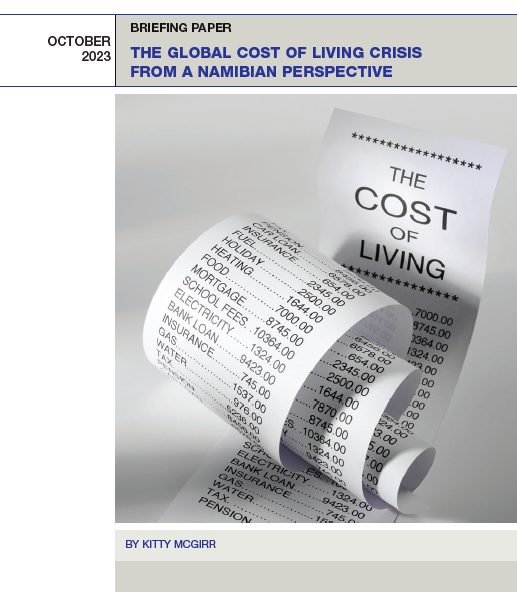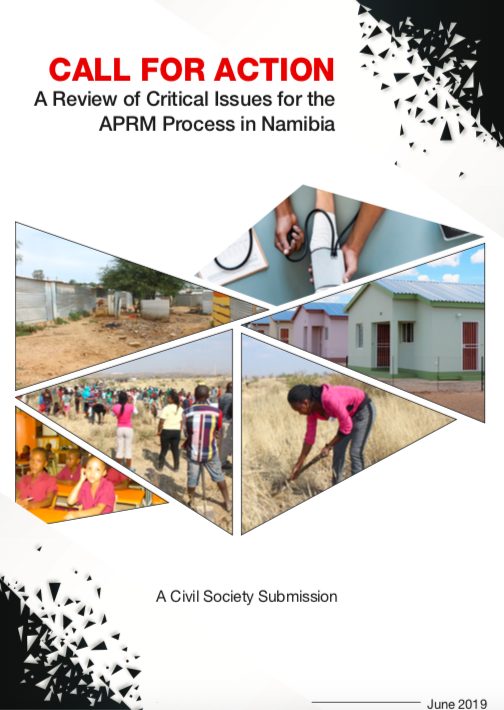The Cost Of Living Crisis

In 2022, the United Nations Development Programme estimated that the global cost of living crisis had pushed over 51 million people into extreme poverty at the US$ 1.90-a-day poverty line with an additional 20 million people falling into poverty at the US$ 3.20-a-day benchmark, bringing the net cumulative figure to 22.7% of the world’s population. […]
Thoughts On The Pandemic – Two Years On

State of Emergency The initial lockdown was difficult for the public to deal with, but it was necessary. At the time we didn’t know how harmful the virus might be – so it was legitimate for government to introduce emergency measures and limit some rights, such as freedom of movement and size of public gatherings. […]
The APRM Process in Namibia – A Call For Action

In January 2017, Namibia became the 36th African Union (AU) member state to voluntarily accede to the African Peer Review Mechanism (APRM). The APRM’s rules require that civil society is meaningfully involved in each country’s review process. Together with government and the private sector, the country’s civil society sought to diagnose governance strengths and weaknesses, […]
IPPR stands by its Afrobarometer survey on government’s slow pace to address poverty
The Institute of Public Policy Research (IPPR) says the outcome of the Afrobarometer survey is reliable and not misleading.
IPPR was reacting to comments made by the Minister of Poverty Eradication and Social Welfare, Zephania Kameeta and Deputy Minister of Urban and Rural Development Derek Klazen that the survey was aimed at tarnishing the government’s image.
Economy Watch December 2016

The final bulletin of 2016 examines Namibia’s latest poverty rates and the impact of recession.
The Estimation of Poverty Trends in Post-Independence Namibia
An IPPR analyses on poverty trends after independence

